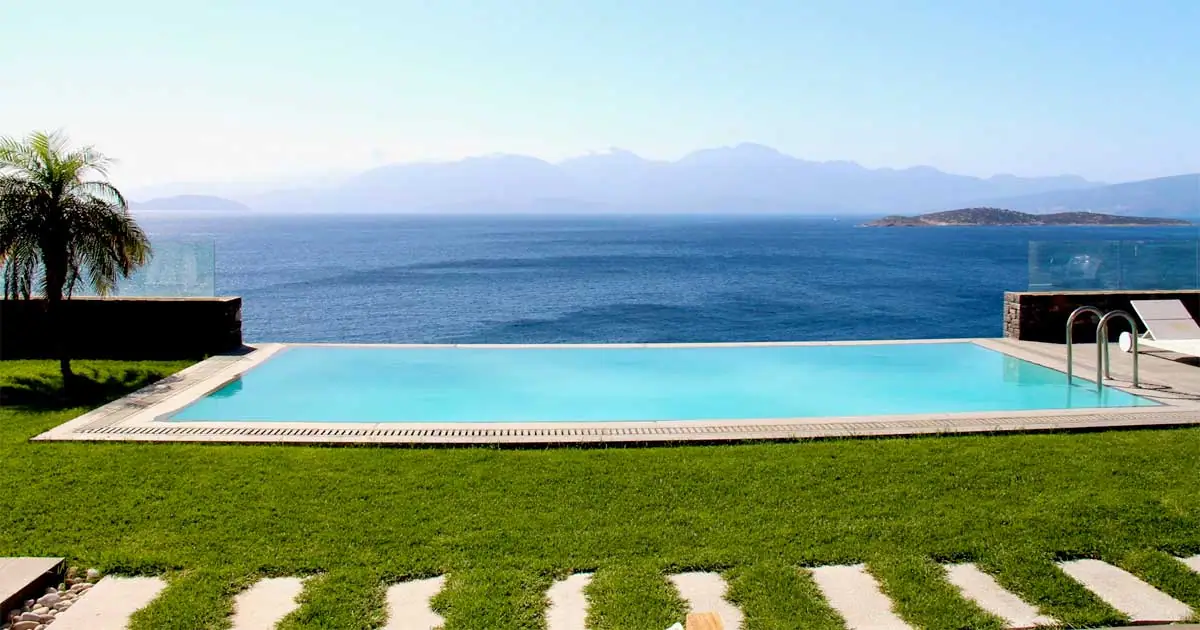How much physical work do we actually do? If you calculate, it will be seen that I do very little physical work compared to the need.
This is why we fall before old age. For busy professionals who work from chair desks, there is no alternative to swimming.
So especially for them, the swimming pool is more valuable than the doctor’s office. Also, swimming is a very important exercise to keep the body healthy and fit. So the most suitable for swimming is a river or pond.
The number of ponds is decreasing day by day in countries with increasing populations. Most of the ponds we come across are commercial fish ponds (fisheries). Needless to say about the river.
It is better not to think about the river compared to the rate at which the river is being polluted and the river is losing its navigability. So swimming pools are the only alternative to rivers and ponds for swimming.
What is a swimming pool?
Swimming Pool (Jhrissarham Chardash) is an English word that means swimming pool in Bengali. There are many words in Bengali which are not in use. As such swimming pool is a very strange word to us as it is better known as swimming pool. After saying swimming pool, no one has trouble understanding what it is.
A swimming pool is a facility that is used only for swimming. We swim for many reasons. Some do different types of swimming competitions, some for exercise, some for leisure, and some for competition as a water sport.
Swimming pools are most often built underground (like dug-out ponds), but swimming pools are also built in other areas, such as on top of buildings or on ships. In some cases, the swimming pool is also made of glass or plastic like a chow on the ground.
Swimming pools are usually constructed of materials such as concrete, natural stone, metal, plastic, or fiberglass. It can be of any shape or built-in conventional shapes, with the largest type being the Olympic-sized swimming pool.
Fitness centers usually have swimming pools for exercise and recreation. However, swimming pools are open to the public in some areas of the city. Swimming pools are built in hotels, resorts, and vacation centers for the entertainment of guests.
In many cases, school, college, or university authorities construct swimming pools for teaching physical education, recreation, and swimming competitions to students.
How did the use of this swimming pool begin?
The first swimming pool was built in the Indian subcontinent in the third millennium BC. The pool was built as a “Great Bath” in the ancient city of Mohenjodaro in subcontinental Pakistan. This was the first swimming pool in history. The 12 x 7 m (39 x 23 ft) water tank was constructed of bricks. Tar was used as a sealant in this pool.
Ancient Greek and Roman emperors used to build pools for military practice in their athletic schools “palaestra”. Roman emperors also had private swimming pools called ‘piscina’. In the middle of the 19th century, swimming pools became especially popular in the city of London, Britain. In 1837, the first swimming club in the world was established there. Maidstone Swimming Club in Kent is considered to be the oldest swimming association or swimming club in Britain.
Why is a swimming pool necessary?
Many diseases of the body are cured by swimming. You will also be able to break out of a life of boredom. Why swim? The answer is very simple. Swimming is a kind of physical exercise.
As a result, every part of the body is active. So swimming has many benefits. That’s why swimming pools are so important. Let’s take a look at swimming and why we need swimming pools.
- Many diseases of the body are cured by swimming. The mind will be happy. But in the case of a pond or river, the benefits are more.
- Regular swimming reduces the chance of future heart disease by 30 to 40 percent.
- Blood pressure also decreases. Cholesterol will decrease at the same time. Swimming reduces the risk of diabetes by 10 percent. Lung health is also good.
- Arthritis problems are reduced by swimming. Knee pain and leg pain decrease.
- Stress is reduced to release beneficial hormones in the body. Swimming is very beneficial for various mental problems like dementia.
- Also, those who have sleep problems, do not fall asleep easily, swimming can get rid of this problem.
- If you swim in a pond or river, that’s fine. But there are many things to keep in mind when getting into the swimming pool.
- Especially in swimming pools, since various chemicals including chlorine and bromine are used to keep the water good, it is better to avoid covered swimming pools in this case.
- Several other things should be kept in mind while getting into the swimming pool. First, take a shower, and get up from swimming and shower again.
How many types of swimming pools?
There is nothing special about the type of swimming pool. All pools look almost the same, the water looks the same and the swimming feels the same. However, there are three types of swimming pools based on the type of water. Besides, we see many types of swimming pools around us based on nature and usage, some examples are mentioned below.
- Commercial swimming pools
- Residential swimming pool
- Competition pool
- Above ground pool
- In-ground pool
- Indoor swimming pool
- Outdoor pool
- Concrete swimming pool
- Fiberglass pool
- Vinyl liner swimming pool
- Soft-walled swimming pool
- temporary pool
- Kidding Pool (for children)
- Blow Up Pool
- Spas
- Jacuzzis
- hot tub
- Custom swimming pool
- Infinity pool
- Olympic swimming pool
- Lap pool
- Hotel swimming pool
What is the type of swimming pool water?
As mentioned earlier, there are many types of swimming pools. Which is underground, which is made of brick, and cement. It is on the top floor of a building or on a ship. Some can be built with brick and stone and some with fiberglass.
If there are no restrictions on construction, there are many health benefits to swimming pool water use. Since many people swim and bathe together in the limited water of the same pool, its purity is very important.
So we should know what swimming pool water looks like and what it should look like. Various chemicals are added to swimming pool water for health reasons. So swimming pool water is divided into three parts.
Chlorine water
Chlorine is an important chemical that has long been used to sanitize swimming pool water. Chlorine was used as an anti-bacterial in swimming pools because it could kill any bacteria in the water.
This Rasanik is not only used in water. Chlorine is also used when cleaning pools. It is available in the market in three general conditions. Chlorine is available in the market in three states: solid, crystalline, and liquid. It has a long lifespan and costs less. Therefore, the use of chlorine in swimming pools is the highest.
While there are many advantages to using chlorine in pools, there are also some disadvantages. Chlorinated swimming pools require a lot of maintenance. It is not possible to predict in advance what reaction this chemical may cause.
It also has many unpredictable reactions to the many types of microorganisms present in the pool. Chlorine mixes with water to form a substance called ‘chloramine’ which causes pool water to smell bad. Any swimming pool accident can happen due to improper use or storage. So be very careful while using or storing.
Saltwater pool
A saltwater pool is a saltwater swimming pool. In this type of swimming pool salt should be applied instead of chlorine. The salt is then converted into chlorine by a chlorine generator.
Due to the high level of salt applied, the water in such swimming pools is very salty. Water with a salt content of 5000 ppm (CHC) is considered to be of poor quality. Generally, PPM levels between 3000-4000 are considered normal. The salinity level in saltwater pools is about 10th of the salinity of ocean water.
Mineral water pool
Mineral water pools are at the top among the most popular pools day by day. The reason for the popularity of mineral water pool is that it is the only pool that ensures maximum health protection. Mineral water pools also known as Magnapools are premium quality swimming pools. It may be built with fiberglass on top or underground.
Magnapool water is rich in magnesium which is very beneficial for health. This water keeps the skin very soft, and hair very silky. On the other hand, bathing in common salt water or chlorine pool water makes the skin dry and the hair dull. Magnesium keeps water much clearer. It protects the skin from dryness as it does not contain salinity.
Regardless of the type of pool you use, health safety must be kept in mind before using the pool. Swimming is an exercise that benefits every part of the body.
But swimming in dangerous pools should be considered first so as not to cause bodily harm. The above information will be very useful for those who have never thought about swimming in a swimming pool. It will definitely come in handy for those who swim regularly.




